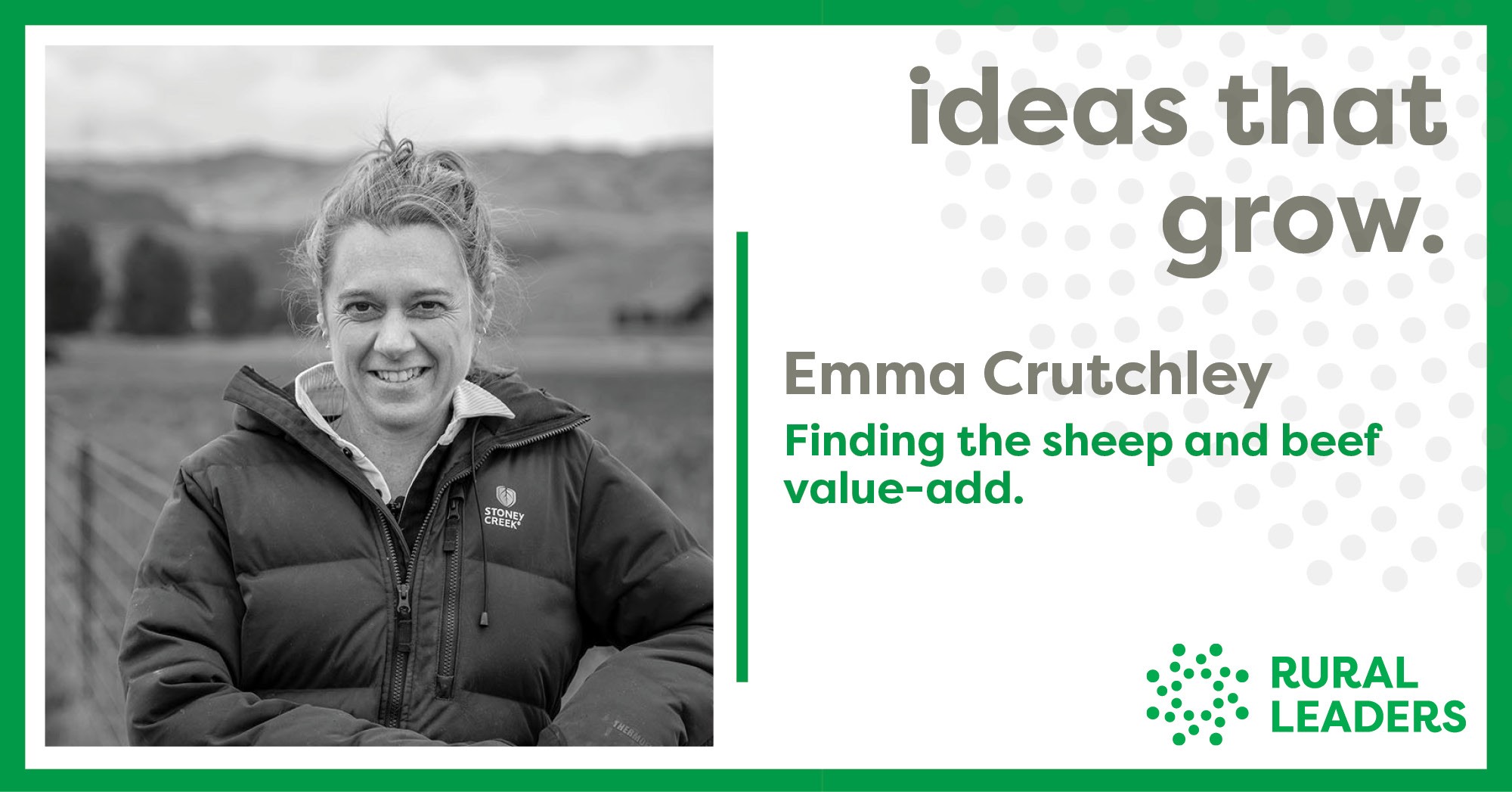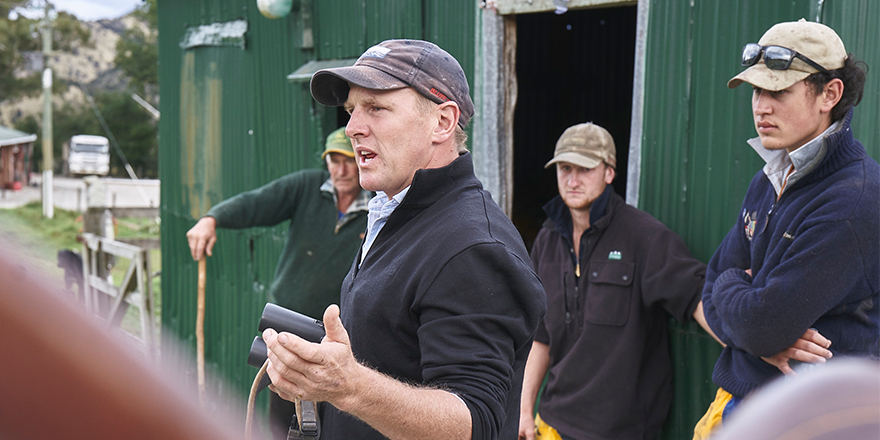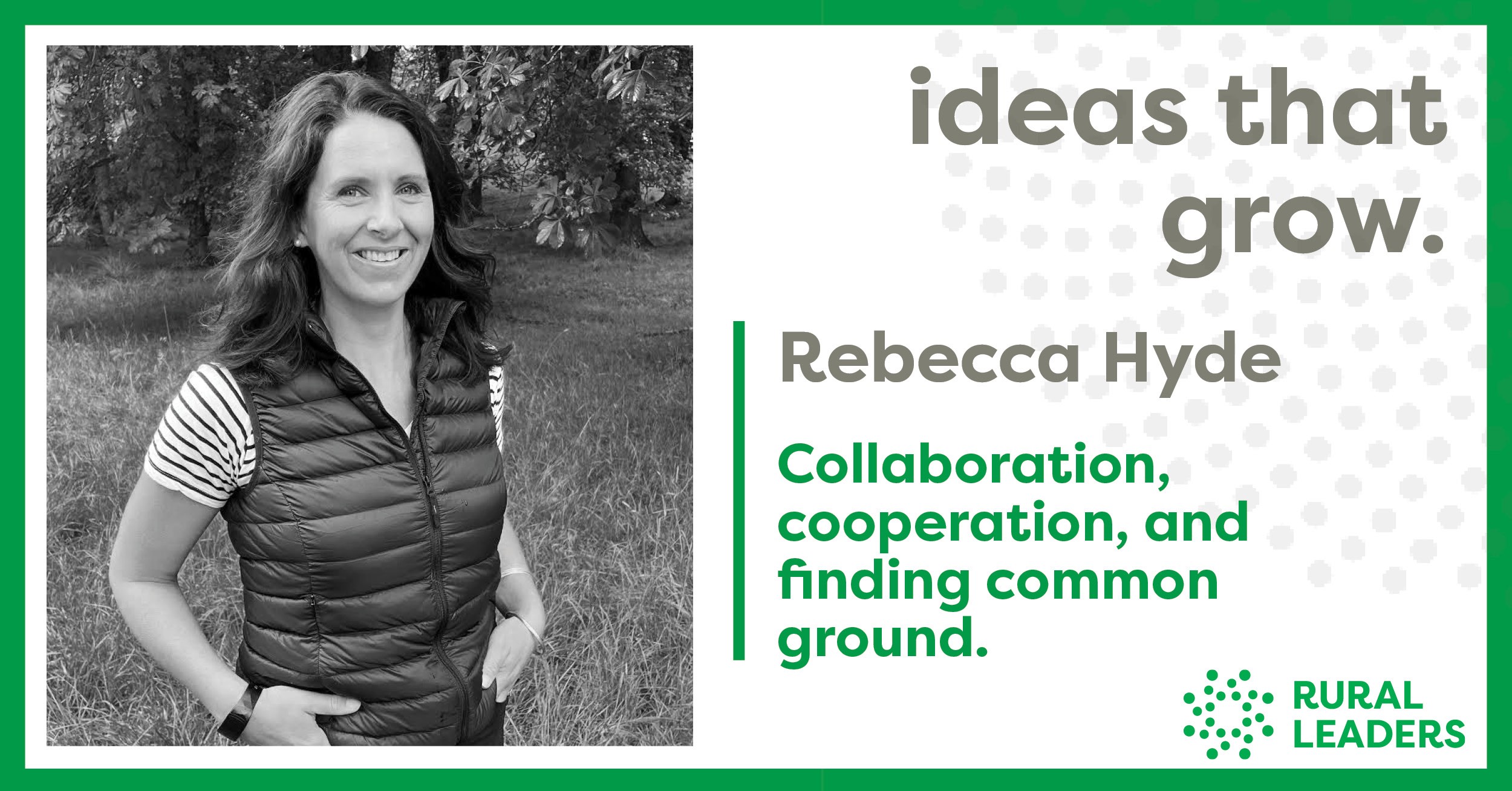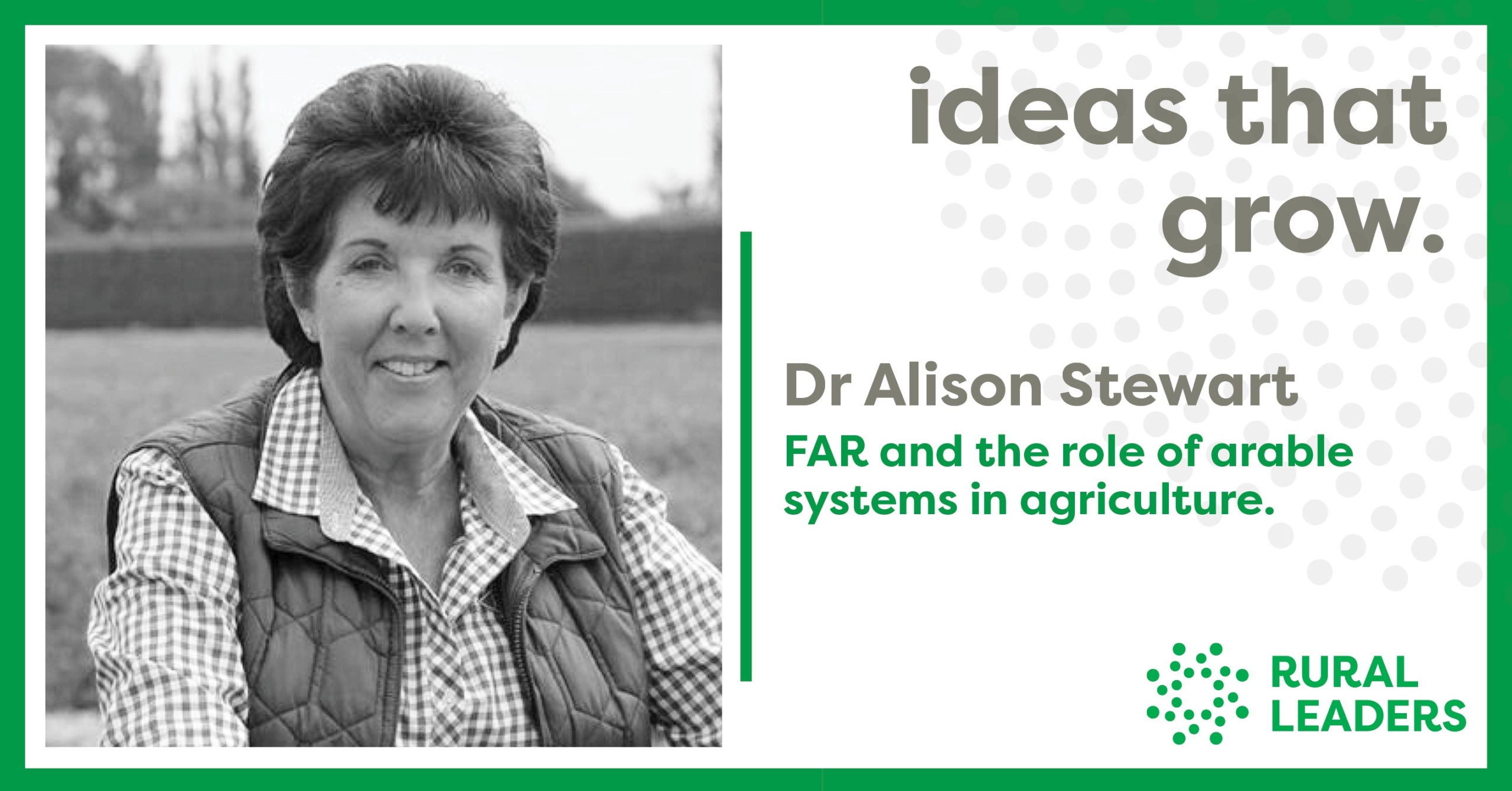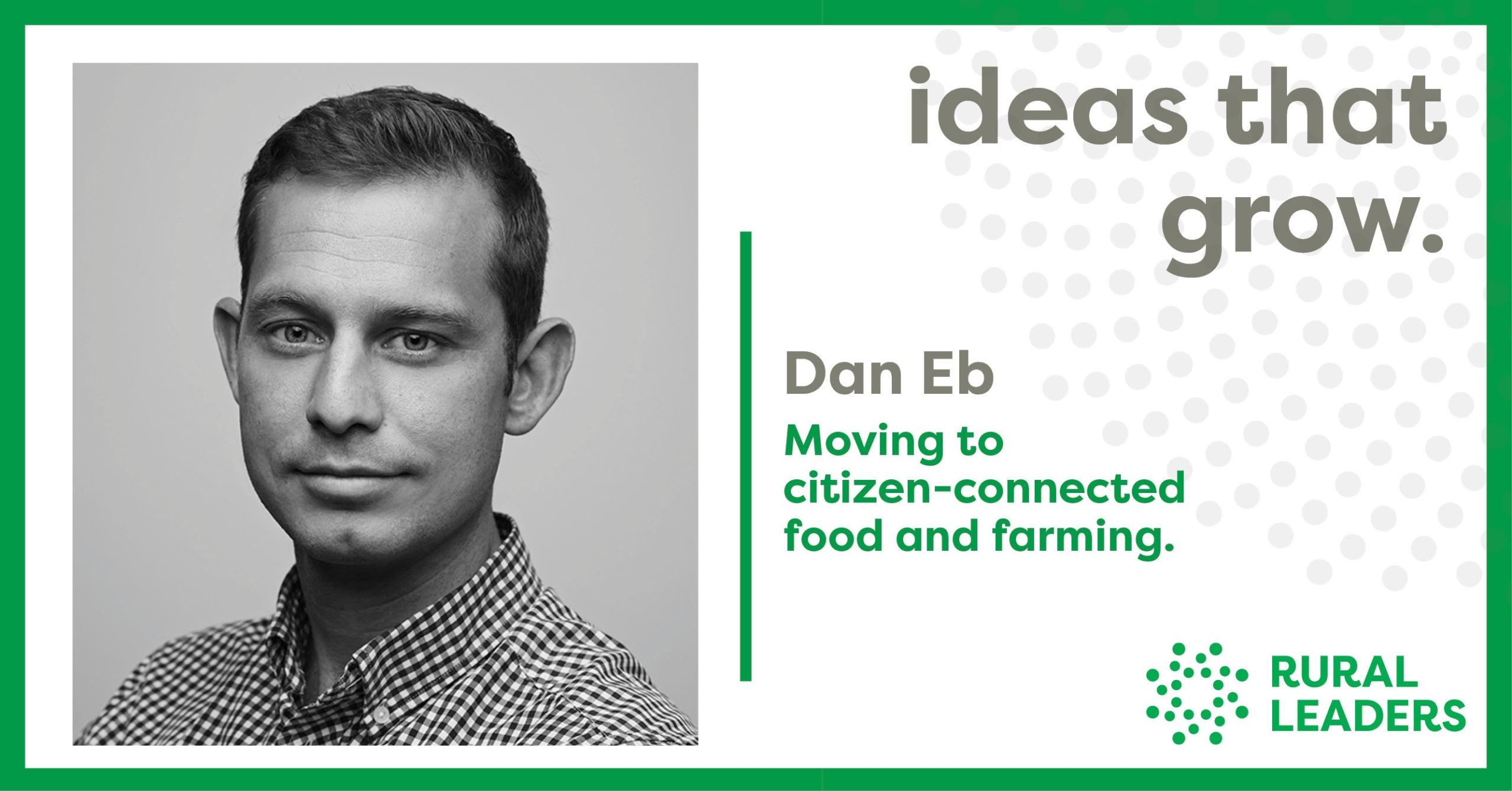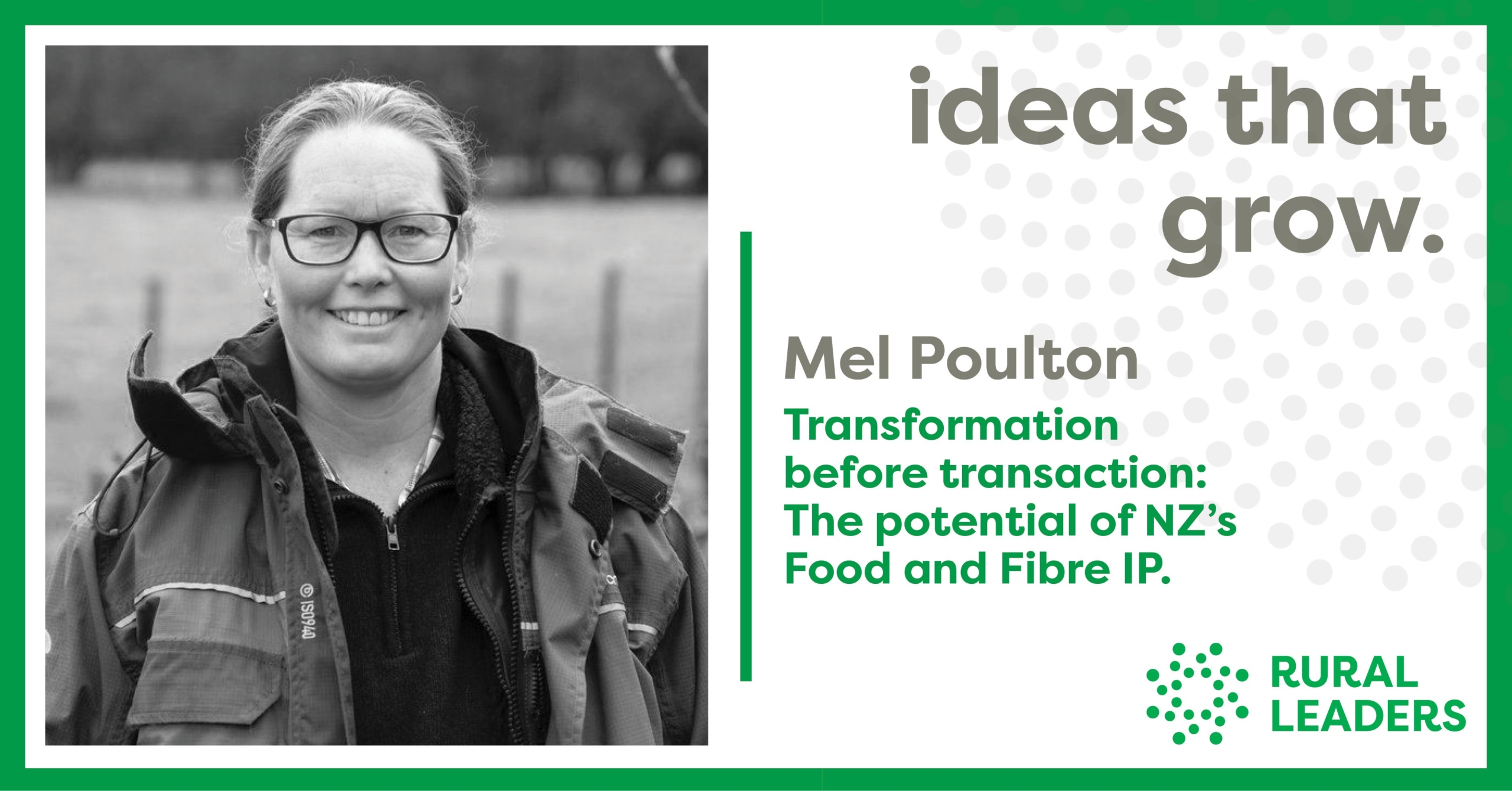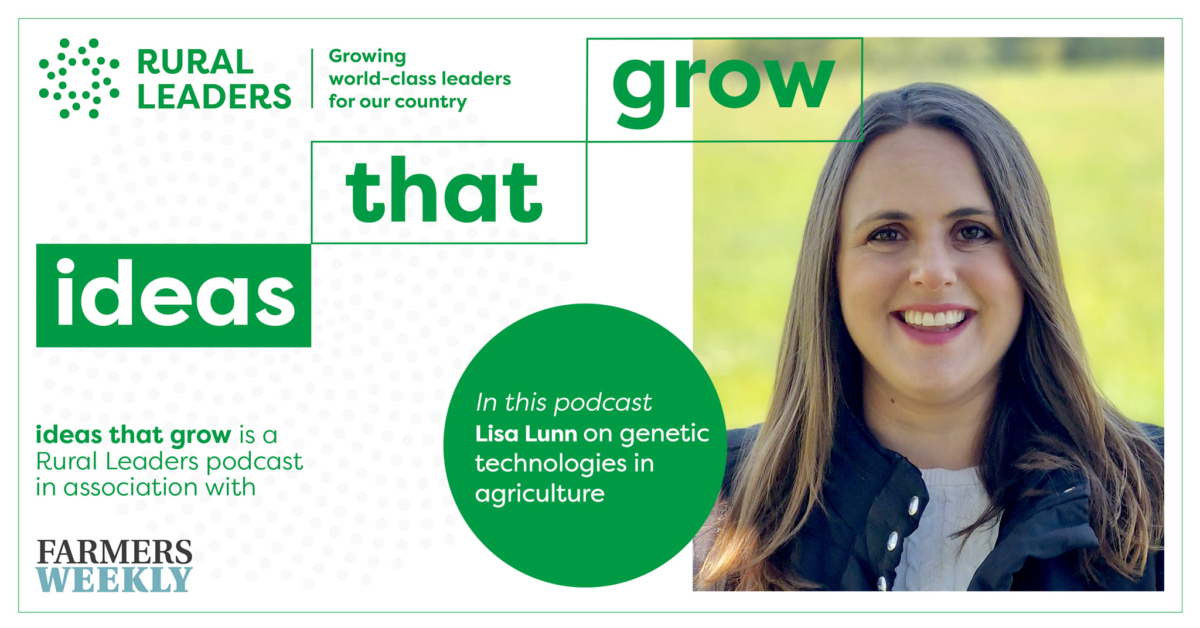
In this podcast, Lisa Lunn, 2024 Kellogg Scholar, talks to Bryan Gibson, Managing Editor at Farmers Weekly about her Kellogg research into the use of genetic technologies in agriculture. Lisa’s research presents a balanced view that unpacks the challenges, and the opportunities genetic technologies offer the food and fibre sector.
Listen to this episode of Ideas that Grow, or click on one of the platform icons below to listen on your favourite player:
Episode Transcript
Bryan Gibson – Managing Editor of Farmers Weekly.
You’ve joined Rural Leaders’ Ideas That Grow podcast. In this series, we’ll be drawing on insights from innovative rural leaders to help plant ideas that grow so our regions can flourish. Ideas that Grow is presented in association with Farmers Weekly.
Bryan Gibson, Managing Editor of Farmers Weekly.
You’re with Ideas That Grow, the Rural Leaders podcast. I’m Bryan Gibson, Managing Editor of Farmers Weekly. With me on this week’s show is Lisa Lunn, who is a recent Kellogg scholar.
Lisa Lunn, 2024 Kellogg Scholar and Category Manager for Crop Protection at Farmlands:
LL: Hi, Bryan. Thanks for having me.
BG: Where are you speaking from?
LL: Currently in beautiful Morrinsville in the Waikato, where I’m based.
Lisa’s Journey and Passion for the Food and Fibre Sector
BG: Nice. Now, you work for Farmlands, is that right?
LL: Yes, I do. I’m the Category Manager for Crop Protection at Farmlands.
BG: That sounds like a big job.
LL: Yes, essentially, it’s looking after anything related to agrochemical with an agronomy focus across the country. Working in really close with our team of talented TFOs, our agronomists, and our supply chain team as well.
BG: What knowledge and education do you need to get that job?
LL: I went through Lincoln University and got an Agricultural Science Degree, and I spent quite a few years in the sector working in various technical sales roles. I’ve had pretty good on-the-ground experience around the industry. Then this opportunity came up to get into the merchandising team. On my side of things, I bring a bit of technical on-the-ground knowledge, in an incredibly supportive environment with a lot of resources to help on the category side of things as well.
BG: Was the food and fibre sector always going to be your career of choice?
LL: Yes, I think so. I grew up on a small farm in the North Waikato. I think I always lean towards science and agriculture. Heading down to Lincoln to get my qualification was a natural step – Just so passionate about the food and fibre sector. It’s obviously everything starts and stops the food we grow. I’m proud to be involved with a sector that puts food on people’s tables around the world every day. It’s a pretty exciting industry to be part of.
Genetic technologies and the Kellogg research report
BG: We know the food and fibre sector in general, and New Zealand has a few challenges ahead of it. One of them we’re grappling with at the moment is whether to relax the rules around genetic technologies. And your Kellogg’s scholarship report looked directly at that, didn’t it?
LL: Yes, I was part of Cohort 51 that kicked off about a year ago. At the time, it was being talked about, but obviously a lot more has happened in the past year since then. The coalition government proposed some rules, a rethink of the rules, I suppose, that govern the genetic technology space. My report looked into if a change were to happen, what do we need to understand, as a country ,to make sure that any changes implemented are sustainable and the best thing for the country and our export markets.
Kellogg research process and key findings
BG: How do you go about getting the information and putting it together?
LL: Every Kellogg report generally involves a literature review. There’s a fair bit out there on this topic. Genetic technologies are very prevalent overseas, so there’s plenty of information there, and there’s quite a bit of information as well as to how it may impact our export markets.
The other part of that was semi-structured interviews. I spoke to about 16 key stakeholders from across the industry and also environmentalist groups as well, to make sure it was balanced. I had some interviews, and analysed the data as to the main trends that came out of it.
BG: Can you tell us a little bit about what those trends were?
LL: I spoke to a number of stakeholders representing a lot of sectors throughout the primary industries, and environmental groups, to make sure it was a fair and balanced discussion. In the groups I spoke to, no one was outright against a change, but there was plenty of those that were for it, and a portion were supportive but proceed with caution.
There were definite trends there in that a lot of people did support a change, and then probably the main group was ‘proceed with caution’. It was, ‘have a look at what other countries have done, make sure there’s a very good national conversation had so that everyone’s brought up to speed and understand what it means for us as New Zealanders, what it means for our export markets’. All of these things, that if we are to do it, we’ve got to do it right. We’ve got to take our lead from other countries that have done it and who’s been successful and who hasn’t.
Legislation and Global Considerations
LL: There was a group of individuals that I spoke to that were a bit more, ‘let’s find out a bit more information before we can make a decision, and potentially, are there other areas we should be focusing on first?’
A big thing that came out of it was that there are a lot of uses of genetic technologies. One of them, that’s been heavily spoken about, is the ability to reduce our greenhouse gas emissions. The group of respondents I spoke to were very clear on saying, ‘this is not a silver bullet’.
It has to be part of a holistic approach that means that we can use other technologies and other mechanisms to help reduce our greenhouse gas emissions. This isn’t just going to be a set and forget. We’ve got to look at the bigger picture and make sure we are using everything we can to make sure we’re hitting the targets we’ve set ourselves and doing the right thing to be sustainable farmers. It’s not something that’s just going to come in and solve all our problems overnight.
BG: The legislation we’re working to now was written in the mid ’90s, wasn’t it? Considering how far the science has moved, it’s definitely time to have another look at this.
LL: Yes, scientific consensus is that basically the technologies have moved faster than our legislation has. As you said, it was written a long time ago, the HSO Act, which governs the space. Initially, when it was written, genetic technologies was a lot more cisgenesis.
There was a lot more inter-species genetic transfer. Nowadays, it’s much more specific with CRISPR-Cas9, and those technologies. There’s also some cases where certain modifications that might happen in the market that’s been exported to, might not even be considered a genetic modification because it’s something that can occur in nature anyway. It’s about having clarity on the definitions and what our export markets would consider genetic modification or genetic gene-editing. And bringing that legislation up to date with the technology we have available to us these days.
BG: That’s the big thing. I think I often find in the correspondence I get on this, that some people think we can do this, so we should, whereas there’s a bigger discussion to have around what does that mean for other things outside of science in terms of society and the way we market ourselves to the world.
The Kellogg Experience and Future Outlook
BG: You mentioned trade agreements already. There are a lot of places who have different ideas what is acceptable or not. There’s a lot to get through, isn’t there?
LL: Absolutely. A lot of the competing nations in the agriculture space do use it, and in some areas it has given them an advantage. But we tend to trade on ‘clean green’ with the NZ Inc. image.
We need to be conscious of the fact that just because we can do it, it doesn’t mean we should. That’s an absolutely fair argument. There are a lot of very valid concerns out there. To name a few, it would be what impact is it going to have on our export market? There’s concerns around the corporate regulations around it.
There’s concerns about coexistence. Can an organic farmer still do what they want to do and be nearby to a farm that’s using GE products? I think it needs to be balanced. It needs to be fact-based.
I think you have valid concerns on both sides of the coin, and they need to be heard and understood and addressed. Some of the literature I read spoke to the fact that our export markets are probably more concerned with us moving in the right direction with our greenhouse gas emissions, water quality, animal husbandry, those things, even though we’re already very good.
But there were areas that, potentially, they’d like to see improvement, whereas in some markets, genetic technologies was less of a buying decision for them. But can we coexist? Can we still have the non-genetic technologies with farms operating alongside ones that choose to take up these technologies? The government has drafted a bill that’s already available for viewing and submissions.
It’s making sure that the discussions that are had our fact base, and it is an emotional topic. Hearing both sides of the coin and looking into what’s best for us as a country, as an agricultural export nation, and as New Zealand does as well, it goes beyond agriculture. Just understanding the technologies that may be available to us – what benefits are they going to bring?
BG: I understand the bill that’s been drafted is loosely based on the Australian system that they’ve got in train. Is that correct?
LL: Yes, it is.
BG: That there is some aligning with our close neighbours, is not a bad place to start, hopefully.
LL: Yes, absolutely. Just taking a lead on some of the nations that have done it and what their learnings have been and going more risk-based assessments as opposed to reviewing the individual technology itself, what’s the end product. They’re definitely taking a lead from Australia’s legislation.
A Transformative Leadership Experience
BG: Your report is out there. What was it like doing it? What was the Kellogg experience like for you?
LL: Fantastic, I absolutely loved it. I couldn’t recommend it more. I was very fortunate to be sponsored by Farmlands to do it. Farmlands are very generous with allowing me the time to head down and do the in-person courses. It was a lot of work putting the report together and doing the interviews, but the whole experience was absolutely incredible – The people you’re able to connect with both throughout the cohort.
The speakers that came to see us, conducting themselves under Chatham House rules meant they were just able to be so free and frank, and you could ask them questions you probably could never normally ask an industry leader or a CEO or a high-powered scientist or politician. You could be very open and transparent and learn whatever you needed to for your own personal development journey.
It was just absolutely unreal. The scope of people that were in the cohort, the knowledge they had, the questions they asked, just a wonderful cross-section of people from across the industry. The main thing we all had in common was we were passionate about the industry and the future of the sector.
BG: You mentioned it is personal development. What does the future look like for you?
LL: I touched on it before: Food and Fibre is my passion. I love being part of the sector, and I will always remain a part of the sector. I’m excited to be part of it here in New Zealand. It’s such a small industry. Everyone knows everyone. It’s a great thing. Everyone’s genuinely passionate to turn up to work every day.
I’ve been with Farmlands for about two and a half years now, so I’m really happy to get stuck in there and keep building on my role and working with a fantastic team I’m lucky to be a part of. Whatever I do, it’ll be involving the sector.
BG: For those out there who might be thinking about getting to work on something like the Kellogg programme, you’d recommend it?
LL: Absolutely. Rural leaders do a fantastic job of giving you all the resources you need, all the tools you need in your toolbox to become a better leader, to be more self-aware, to understand the skills you do have and the skills you could improve on.
The networks are astounding, and it gives you really good context for both internal
New Zealand-centric trends and aspects of the sector here, and also a really good handle on geopolitics and things that are happening overseas.
It helps you understand what trends may be emerging and how they could affect us here, as well as teaching us really good soft skills, like improving your critical thinking skills and time management and all sorts of things that come out of it.
Everything I gained from that is absolutely invaluable, and I’ll continue to use it in my career.
Thanks for listening to Ideas That Grow, a Rural Leaders podcast presented in association with Farmers Weekly.
For more information on Rural Leaders, the Nuffield New Zealand Farming Scholarships, the Kellogg Rural Leadership Programme, the Engage Programme, or the Value Chain Innovation Programme, please visit ruralleaders.co.nz


